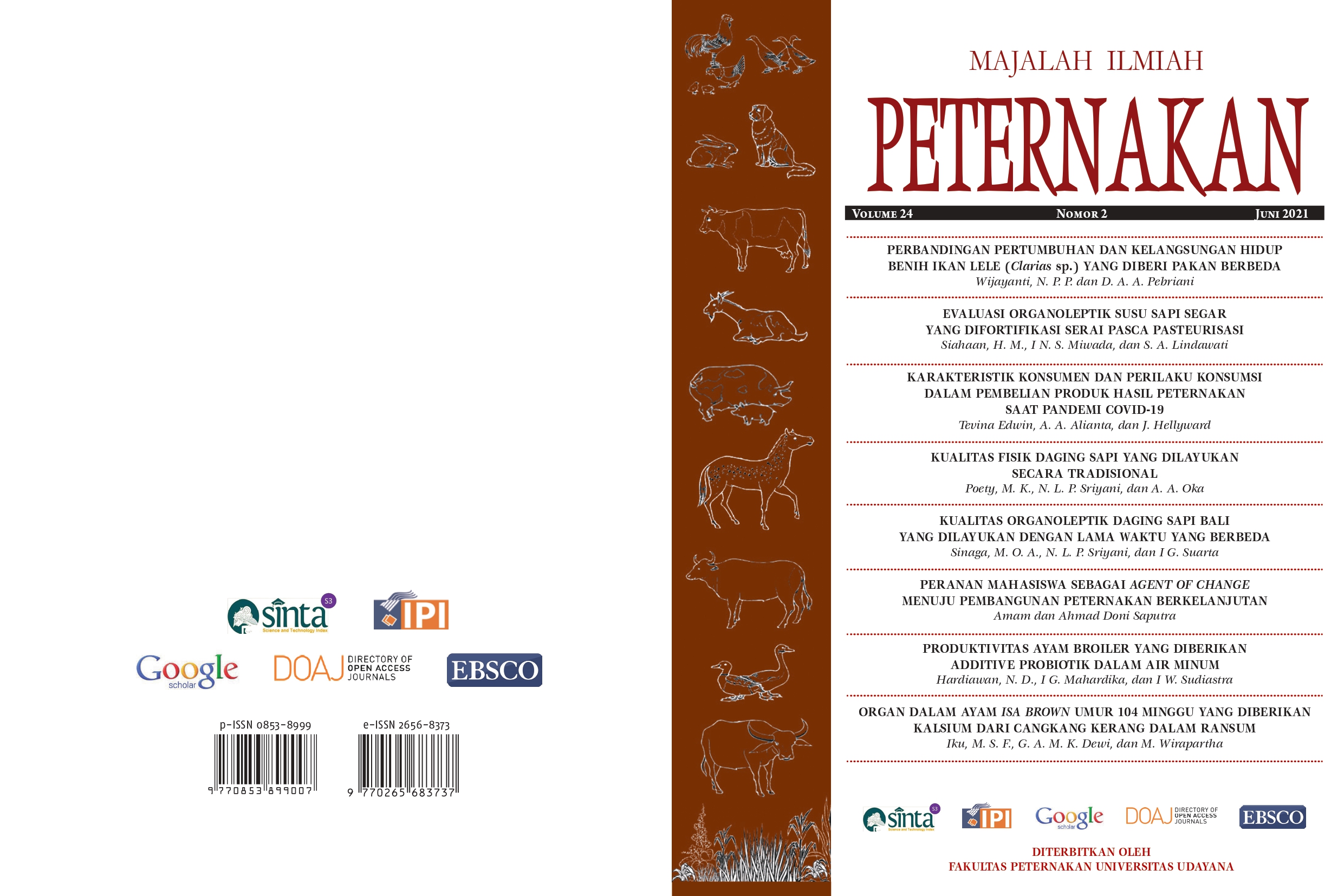PRODUCTIVITY OF BROILER CHICKENS GIVEN PROBIOTIC ADDITIVES IN DRINKING WATER
Abstract
Research was conducted to study the effect of probiotic additives in drinking water on the productivity of broiler chickens. The study used a completely randomized design with 4 treatments and 3 replications so that there were 12 experimental units. This research use 180 DOC broiler strain CP 707. Chickens were raised from the age of 1 day to 35 days or 5 weeks of age where Treatment A was the chicken that did not get BioWish, treatment B was the chicken whose drinking water was given BioWish dose of 1 g/10 l drinking water, treatment C of chickens whose drinking water was given BioWish of 2 g/10 l of drinking water, treatment D of chickens whose drinking water was given BioWish of 3 g/10 of drinking water. The variables observed were body weight, ration consumption, and feed conversion ratio (FCR) and carcass weight. The results showed that the provision of probiotic additives in drinking water had a significant effect (P <0.05) on body weight gain, feed conversion ratio (FCR), while it had no significant effect on feed consumption (P> 0.05) and nutrient consumption . From the results of this study it can be concluded that the addition of probiotics with a dose of 0 - 3 g / 10 liters of drinking water has no effect on feed consumption. significant to weight gain, and can increase the efficiency of using rations.






